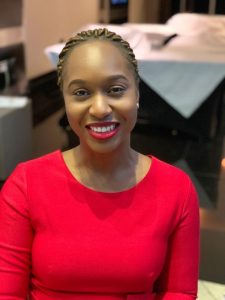
On the one hand, a lot of companies have been doing significant work on improving diversity, especially in terms of gender equality. On the other hand, issues such as ethnicity and race, have not always received enough focus. Last year, the murder of George Floyd played a huge role in amplifying conversations around race and the fact that it happened during the pandemic has been a turning point – it forced the world to stop and listen. The pandemic has made us slow down, which ultimately meant that we were all online a lot more, constantly monitoring the news cycle. When George Floyd’s death hit the news, we had no choice but to pay attention. What was previously a neglected topic suddenly became a boardroom conversation. For race and inclusion, the pandemic could be said to have a positive impact, to a degree, as it made us pay attention to this ugly aspect within our societies. However, other parts of inclusion and diversity did suffer – from a gender point of view, the pandemic had an adverse impact on many groups, especially women. They were the biggest losers; many lost their jobs due to the pressures of having to balance looking after families with work, which led to increased burnout and loss of jobs as a result.
Another challenge presented by the pandemic was the negative impact that it had on young people entering the workforce for the first time. The lockdowns meant that those who were entering the workforce couldn’t benefit from the usual advantages of being in an office space, such as access to mentorship and collaboration. Companies and individuals tried to do what they could, but it still couldn’t compare to the benefits of real life human interactions.
The pandemic also saw greater disparity across socio-economic backgrounds. If you were in the privileged position of having a garden or a nice spare room, you could work and relax in your own space. If you lived in a high-rise or shared accommodation with no outside space, nowhere to call your own, then working and living in the same space was a lot harder. People experienced the pandemic in different ways, but those living in crowded spaces saw a greater negative impact on their focus and career progression. Without the right infrastructure, it was a challenging time for many, especially those with no previous experience of the workplace.
Now that the pandemic is on the wane, the issues that this presents have once again been different for everyone. For those living in a crowded, multi-occupancy home, going to the office provided a bit of a respite. However, for example for women, going back to the office had its own disadvantages, as many had to go back to a lifestyle of early wake-up calls, long commutes and of course figuring out childcare, with the mounting stress really affecting many women’s mental wellbeing. Fundamentally, people from different backgrounds had a varying experience, of both the pandemic and the gradual re-opening that followed.
I believe that there are a number of steps that businesses can take to increase inclusion and create more diverse workplaces. First of all, all initiatives have to start from the top, from how the organisation presents itself, its vision and its culture, through to what the board itself looks like – is it diverse and reflective of the world we live in? Having inclusion and diversity reflected within the makeup of the board is essential, and makes a very clear and unambiguous statement about the sort of workplace they want to create. Organisations also need to create a top-down investment – many companies still rely on grassroot movements created by employees themselves to improve diversity and inclusion. While these movements and initiatives are essential, they need to have investment from the leaders of the company to truly make an impact and work. There should also be a larger focus on systematic biases that exist in recruitment and promotion processes. Companies need to look at how they recruit, what kind of candidates they attract and the phraseology they use in their job specifications. Similarly, a closer look needs to be taken at promotion processes – who is getting promoted and why? Is it fair, is it representative of the workforce? Are some people being neglected because of archaic processes?
Fundamentally, improving diversity is an ongoing and essential task. We are already seeing that the enthusiasm around these issues is waning, there is greater resentment and an ongoing backlash against ‘wokeism’. In order to create workplaces that are representative of the communities they serve, we need to keep fighting to have these important conversations and companies must continue with their commitments to improving diversity and inclusion, across all areas.
 Bukola is the founder/CEO of Career Masterclass which is a platform dedicated to enabling the progression of Black and Minority Ethnic (BAME) professionals in the workplace. Through webinars, live events and the annual STRETCH conference, Bukola teaches practical career tips to a varied BAME audience which has resulted in tangible career progress for the participants.
Bukola is the founder/CEO of Career Masterclass which is a platform dedicated to enabling the progression of Black and Minority Ethnic (BAME) professionals in the workplace. Through webinars, live events and the annual STRETCH conference, Bukola teaches practical career tips to a varied BAME audience which has resulted in tangible career progress for the participants.
She is also a Senior Governance, Risk and Controls expert who has held leadership roles in global financial services organisations such as Barclays, HSBC, RBS, JP Morgan and Deloitte, in a variety of roles spanning Audit, Compliance, Financial crime, Risk & controls.
She was listed in the 2018, 2019 and 2020 PowerList, the 2017 Empower Financial Times List, and the Financial Times HERoes list of executives who have made a substantial difference to women’s careers.
